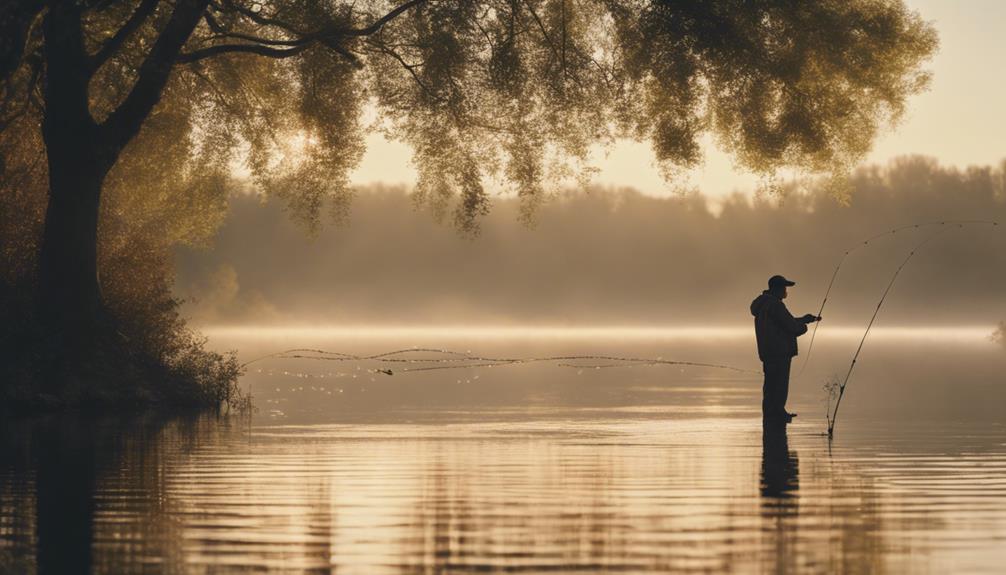Fishing is not only a recreational activity but also a cherished tradition for many families. However, before you cast your line into the water, it’s crucial to understand the regulations in your area, particularly regarding fishing licenses. One of the most common questions among novice anglers is, “What age requires a fishing license?” In this blog post, we will explore this question in detail, providing insights into fishing license requirements, the importance of licenses, and tips for young anglers.
Understanding Fishing License Requirements
Before diving into age-specific requirements, it’s essential to understand what a fishing license is. A fishing license is a permit issued by state authorities that allows individuals to fish in public waters. These permits are designed to regulate fishing activities and ensure sustainable practices. Each state has its own set of regulations, which may include age requirements for obtaining a fishing license. In most cases, children under a certain age can fish without a license, but this varies from state to state.
Age Requirements for Fishing Licenses Across the U.S.
In the United States, the age at which a fishing license is required varies significantly. Generally, most states require individuals aged 16 and older to obtain a fishing license. However, some states allow children younger than 16 to fish without a license, while others may require a license even for younger anglers. For instance, states like California and Florida permit children under 16 to fish without a license, while states like Texas require a license for those aged 17 and older. It’s essential to check your specific state’s regulations to ensure compliance.
The Importance of Fishing Licenses
Fishing licenses play a vital role in wildlife conservation and resource management. By requiring anglers to obtain a license, state authorities can monitor the fishing population, manage fish stocks, and protect the aquatic ecosystem. The fees collected from fishing licenses are often allocated to conservation programs, habitat restoration, and public fishing areas. Therefore, obtaining a fishing license is not just a legal requirement; it contributes to the sustainability of fishing for future generations.
Special Exemptions and Free Fishing Days
Many states offer special exemptions from fishing license requirements for certain groups or on specific days. For example, some states have designated “free fishing days” where residents can fish without a license. These events are designed to promote fishing as a family-friendly activity and encourage new anglers to try their hand at fishing. Additionally, many states exempt young children and seniors from needing a fishing license. It’s essential to research these opportunities as they can provide a cost-effective way for families to enjoy fishing together.
How to Obtain a Fishing License
Obtaining a fishing license is typically a straightforward process. Most states allow you to purchase a fishing license online, at local sporting goods stores, or at designated government offices. When applying for a fishing license, you will need to provide personal information, such as your name, address, and date of birth. Additionally, you may be required to provide proof of residency, especially for non-residents. Some states also require anglers to pass a fishing education course before obtaining a license, particularly for first-time applicants.
Fishing License Fees and Duration
Fishing license fees vary by state and can depend on several factors, including age, residency status, and the type of fishing (freshwater vs. saltwater). Typically, licenses are available in various durations, including daily, weekly, or annual options. Young anglers may also benefit from discounted rates or free licenses, depending on their age and the state’s regulations. Understanding these fees and options can help families budget for their fishing adventures while ensuring compliance with local laws.
Encouraging Young Anglers to Fish Responsibly
As parents or guardians, fostering a love for fishing in young anglers comes with a responsibility to teach them about sustainable practices. This includes following local fishing regulations, respecting catch limits, and practicing catch-and-release when necessary. Educating children about the importance of fishing licenses and the reasons behind them can instill a sense of respect for nature and the rules that govern it. Encouraging responsible fishing habits not only benefits the environment but also ensures that future generations can enjoy the sport as well.
Conclusion: Embrace the Adventure of Fishing
In conclusion, understanding what age requires a fishing license is crucial for anyone looking to introduce children to the joys of fishing. While the general rule is that individuals aged 16 and older need a license, it’s essential to check your specific state’s regulations, as they can vary widely. Fishing licenses are not just legal requirements; they play an integral role in conservation efforts and the sustainability of aquatic ecosystems. By educating young anglers about these aspects and encouraging responsible fishing practices, we can ensure that fishing remains a beloved activity for generations to come. So grab your fishing gear, check the regulations, and embark on an adventure that can create lasting memories for you and your family!
—
This blog post not only addresses the age requirements for fishing licenses but also provides valuable information for aspiring anglers and their families. By following SEO best practices and including relevant keywords and phrases, this article aims to rank well in search engine results, helping readers find the information they need easily.
